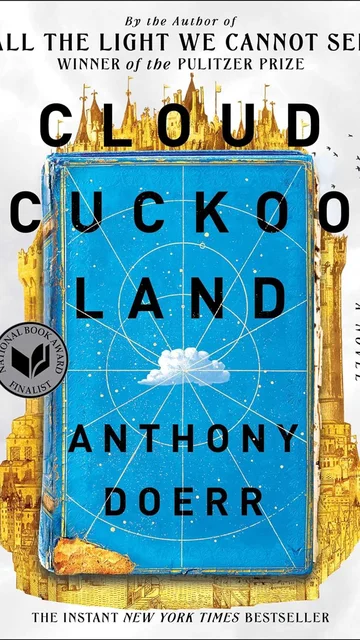
"The Long Way to a Small and Angry Planet" was Becky Chambers' debut science fiction novel in 2015, the beginning of her four-book "Wayfarers" series. It was an immediate best seller. Several books in the series were nominated for Hugo awards (the most prestigious award for works of science fiction) and in 2019 "The Wayfarers" won the Hugo award for the best series.
While I had read and enjoyed "The Long Way to a Small and Angry Planet" when it came out, I did not return to the series until recently. If, like me, you have had the experience of reading the first book of "Game of Thrones" when it was first published and then tried to read the sequels many years later when you have forgotten the cast of thousands, you know how intimidating it can be to go back to a series you have forgotten. I have learned from experience to just reread the first book. But in this case, it was unnecessary.
The Wayfarer books are set in a common world but while characters can reappear in subsequent books, the books are not narratively connected to each other and can be read as standalones. The Wayfarer world is one in which humans left Earth after destroying the planet. When they did they discovered an interconnected galaxy of aliens loosely organized under the GC (Galactic Commons). The true joy of Chambers' series is the detailed, descriptions of the various species, their planets and ways of life. "The Long Way to a Small and Angry Planet" is set in a wormhole tunneling ship called the Wayfarer whose job it is to create spatial tunnels in the galaxy for interstellar transportation. The crew is a diverse group of aliens and humans that become close like family. The setting allows Chambers to introduce the reader to a variety of different species.There are Toremi, Harmagians, Aandrisk, Aelouns, and Grums to name a few. Humans are divided into Exodans and Solans. The ship's AI has become sentient. The interactions between these vividly drawn characters becomes more compelling than the plot that focuses of the efforts of the Wayfarer to create a wormhole to the center of the galaxy where a civil warring species has been admitted to membership in the GC.
The second book of the series, "A Closed and Common Orbit", follows the Wayfarer's AI when it acquires a human body and leaves the ship. The third installment, "Record of a Space Born Few", is set on the human Exodan Fleet where the humans who did not decide to settle on other worlds continue to live on the ships that took them into space. The final book, "The Galaxy and the Ground Within", takes place on an unremarkable planet that operates as a way stop for travelers on their way to other planets. Three travelers are stranded at the Five-Hop One-Stop and share their stories.
Becky Chambers writes space opera that feels very human and familiar. (She is also the author of the much loved Monk and Robot series which has a similarly intimate feel.) This is not the book for science fiction readers who like hard science but for those interested in philosophical questions about humanity.
 Skip to main content
Skip to main content


